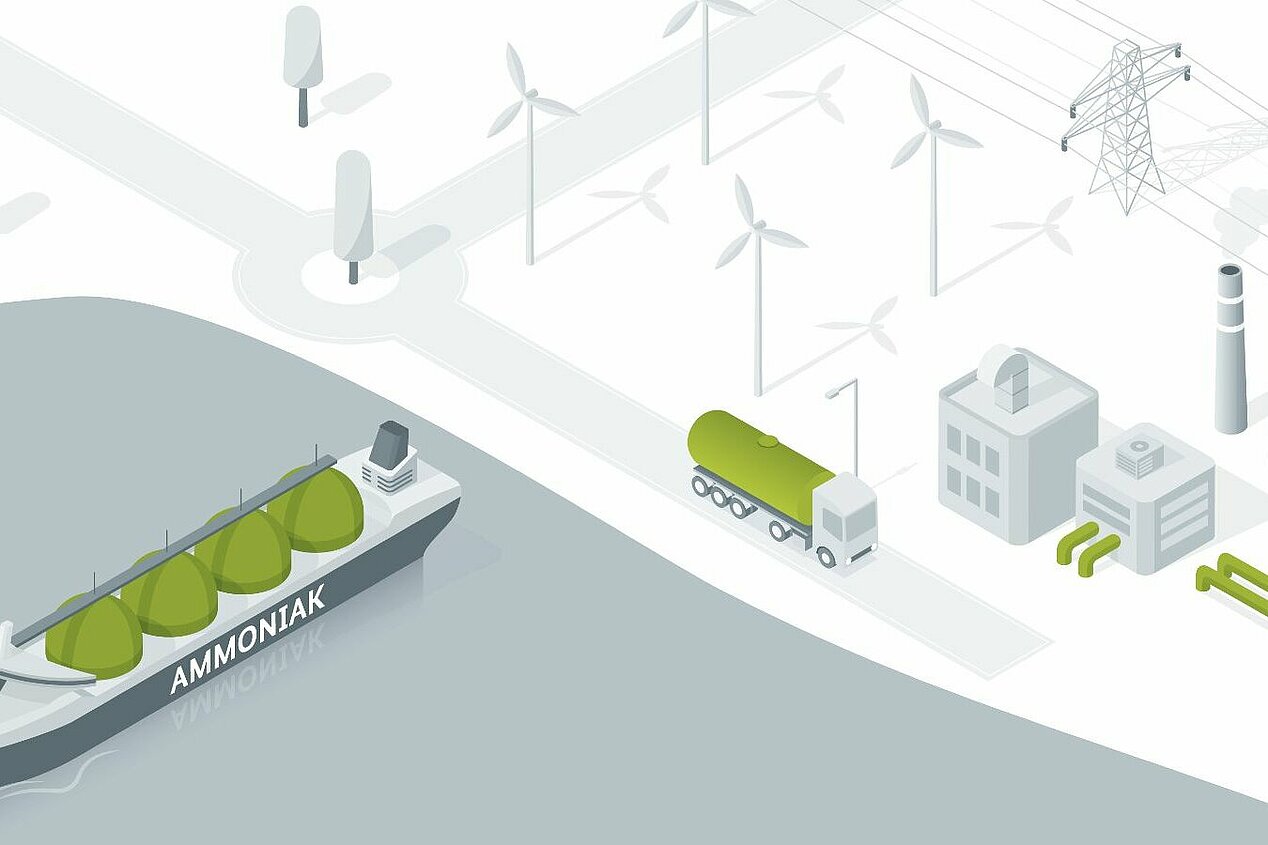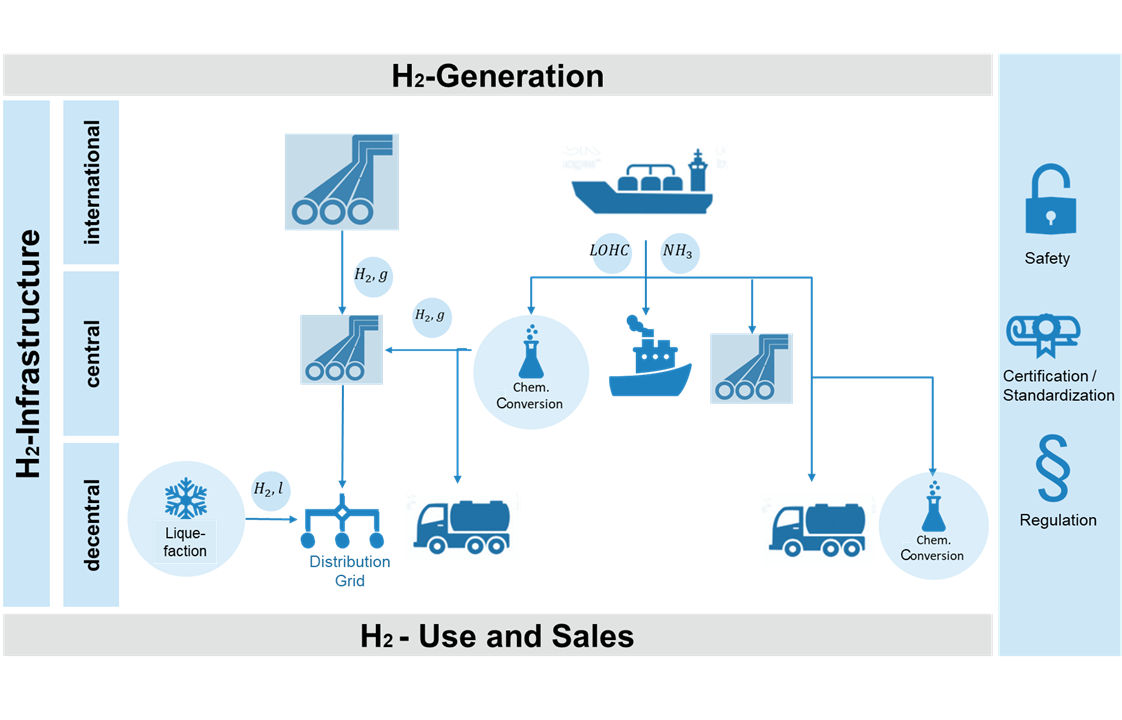

03. October 2021
The DVGW supports the gas and water industry in all technical and scientific areas. The main focus of the Association’s work is on safety and hygiene as well as environmental and consumer protection. The DVGW elaborates technical rules designed to promote the technical self-management of the German gas and water industry, thus ensuring the safe and secure supply of gas and water according to the highest international standards. The Association, which was founded in 1859, currently has approximately 14,000 members. The DVGW is free from economic and political influences.
www.dvgw.de/english-pages

03. October 2021
TransHyDe lead project
BMBF TransHyDE lead project launched
The TransHyDE lead project evaluates and tests hydrogen transport solutions. Because, a hydrogen economy simply can’t function without suitable transport infrastructure. But, the location and size of the specific transport solution is not yet clear. The TransHyDE project is therefore advancing four transport technologies in demonstration projects: (1) hydrogen transport in high-pressure vessels, (2) liquid hydrogen transport, (3) hydrogen transport in existing and new gas pipelines and (4) the transportation of hydrogen bonded in ammonia or the carrier medium LOHC.
The project is also focussed on hydrogen transport in five scientific projects to establish the systemic framework. The scientific projects deal with (1) creating a roadmap to determine what a comprehensive hydrogen infrastructure could look like in the future, (2) developing possible standards and safety provisions for hydrogen transport technologies, (3) the safety of hydrogen transport technologies (materials and sensor systems), (3) efficiently splitting hydrogen from ammonia and (4) filling containers with liquid hydrogen (cryogenic).
The DVGW Research Centre at the Engler-Bunte-Institut is involved in 2 of the 9 collaborative research projects with the following areas of focus:
TransHyDE - Sys collaborative research project
GET H2TransHyDE collaborative research project
